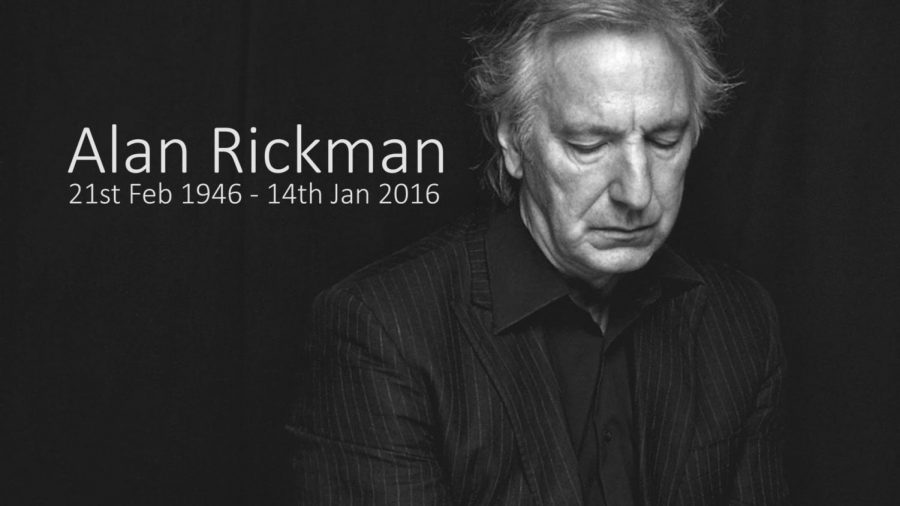How We Deal With the Loss of a Role Model
November 27, 2017
By the time we reach our teenage years, most of us will lose an inspiration, or a role model. Some will tragically lose a grandparent, a parent or even a sibling, but in far more common cases, people lose celebrity icons.
I personally vividly remember certain days in the last few years where someone I admired died; I felt like a part of my childhood died with them. Of course, in cases like my grandmother, who passed away just over a month ago, I felt deep, real emotions, tying to the fact that she was like a second mother to me and I truly loved her. However, I also remember the day Alan Rickman died, one of my favorite actors from my favorite movie series, Harry Potter. I also remember the day Carrie Fisher died, a true icon to many children of the 80’s, continuing to impact life in modern times.
It’s an understatement to say I was raised on Harry Potter and Star Wars. Both deaths impacted me equally, regardless of how they died, but for some people, how they died is how they judge how sad they should be about the death. I compare these two actors because they were equally famous and both died at very similar ages(Carrie Fisher, 60 and Alan Rickman, 69)and both died in 2016, just last year. However, their deaths had far different reactions as a whole.
Alan Rickman passed away from Pancreatic Cancer in early 2016. Discounting Internet “Trolls,” Alan Rickman’s death caused a vast public show of support and compassion. Fans and loved ones rushed to make public condolences, and statements about what the actor did for them.
Carrie Fisher died just after Christmas in 2016, and at the very beginning, a similar public outcry to Alan Rickman’s ensued. The beloved actress was revered and people seemed truly saddened at her death; this all changed after her cause of death was released to the public.
Carrie Fisher’s official cause of death on report is Cardiac Arrest due to recent Cocaine, Heroin, Opiate and MDMA use. It has been public knowledge for a very long time that Carrie Fisher struggled with drug addiction and mental illness her entire life.
The public response changed drastically in mere hours following the cause of death release. Condolences changed to judgements and people incriminating her for her death; all sympathy was gone from some people. Why does society treat death because of mental illness and addiction as though it’s less tragic than from a physical illness?
Some people may say this is one case, and that public responses are being taken out of context. However, how many ways can, “She had it coming,” and, “It’s so selfish for someone to die that way,” be taken?
I could bring up countless examples of this phenomenon; no one can possibly deny that they’ve never once felt as though suicide is a choice.
Let me take these last few paragraphs to convey a fact, no opinions clouded by personal relationships with friends and family. Mental Illness is not a choice, Addiction is not a choice; some people are driven to be who they are, and some are pulled down by the weight of something invisible. If you can’t see that someone’s bleeding, or slung in a cast, please don’t assume that this means that they are any more healthy than someone with a physical illness.
Carrie Fisher did not deserve to die, neither did Alan Rickman, Chester Bennington, Robin Williams or anyone who’s ever died. Everyone lives and everyone dies, but not everyone dies in a way people can understand. There is far too much stigma surrounding the idea of people wanting to die; mental illness and addiction are all but unexplainable, but both are very real.
